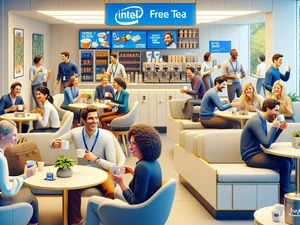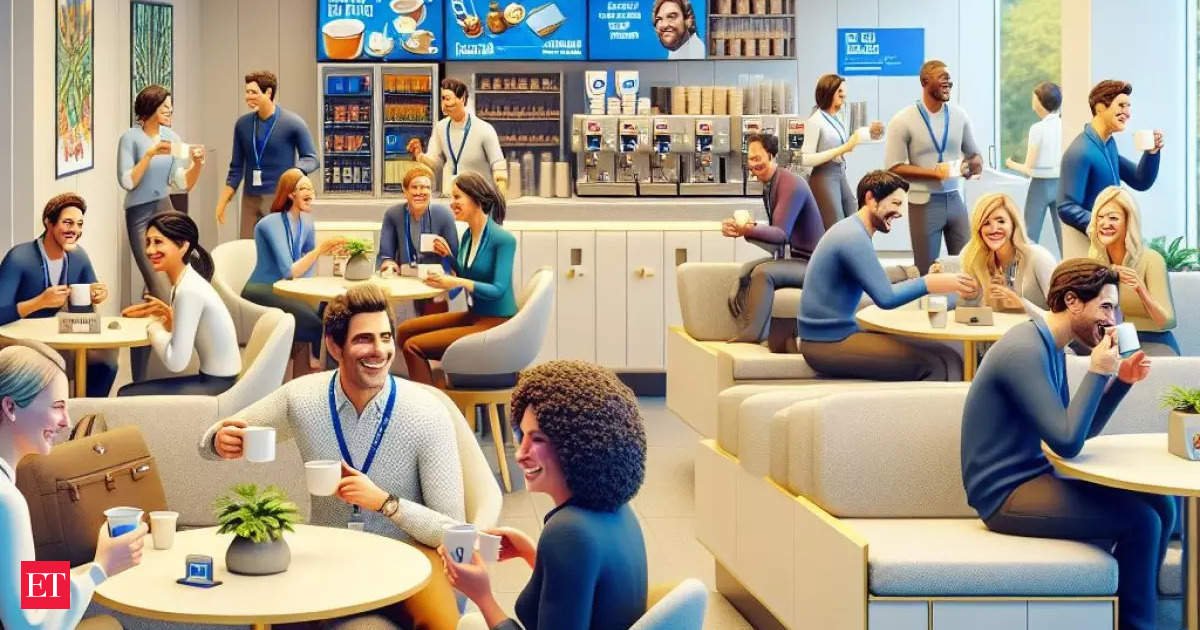Synopsis
Intel is bringing back free coffee and tea for employees. The company had cut several perks, including free beverages, to reduce costs. Intel also laid off thousands of employees and reduced reimbursements. The chipmaker hopes the return of free coffee and tea will improve employee morale.

Intel announced it will reintroduce free coffee and tea for its employees after removing several workplace perks earlier this year as part of extensive cost-saving initiatives. The decision to restore the beverages comes as the company attempts to bolster employee morale following a challenging year, which included workforce reductions and benefit cutbacks.
Return of beverages to improve workplace morale
The reinstatement of free coffee and tea marks a shift in Intel’s approach to managing employee benefits amidst ongoing financial pressures. In an internal message obtained by The Oregonian, Intel emphasized the importance of “small comforts” to the work environment, stating, “Although Intel still faces cost challenges, we understand that small comforts play a significant role in our daily routines. We know this is a small step, but we hope it is a meaningful one in supporting our workplace culture.”
Intel had announced in August a reduction in workforce by approximately 15,000 through voluntary separation agreements and layoffs. The company also informed employees of additional benefit reductions, including cuts to reimbursements for internet, phone, and travel expenses. Although free coffee and tea will return, Intel has yet to restore other perks, such as complimentary fruits, once popular among employees.
Intel’s challenges and recent setbacks
Once a dominant name in technology, Intel has recently faced setbacks that have hindered its competitive edge. Known for its pivotal role in the personal computer boom of the 1990s, the company missed key opportunities in later years, including the mobile chip market of the 2000s. This allowed competitors, like Apple, to gain a substantial lead in mobile technology.
Former Intel CEO Paul Otellini admitted in 2013 that he regretted passing on a partnership with Apple to produce iPhone chips. More recently, Intel also declined an investment opportunity with OpenAI, now a prominent figure in artificial intelligence, which sought Intel’s support to reduce dependence on chips from Nvidia, currently Intel’s main rival in the AI hardware space. Then-CEO Bob Swan dismissed the proposal, reportedly believing AI models would not enter the market soon.
As Intel navigates these challenges, the company’s reintroduction of small workplace perks like free beverages reflects an attempt to support its workforce and foster a positive work culture amidst continuing financial and competitive pressures.

